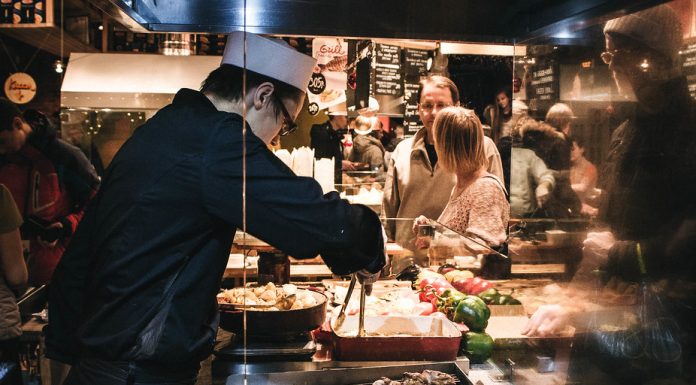(Jon Miltimore, Foundation for Economic Education) State Rep. Tommy Vitolo recently explained why a plan to ban gas stoves in Brookline, Mass., was scrapped.
“Go after the big stuff first,” said Vitolo, an energy consultant and Democrat who represents the 15th Norfolk District in the Massachusetts legislature. “For some, cooking is cathartic. For others it’s spiritual or cultural. It’s an important part of people’s daily lives, and they understandably have preferences.”
Vitolo’s comments were part of a Wall Street Journal story that shows chefs and restaurant groups are pushing back on US cities attempting to ban gas-powered stoves in eateries and newly-constructed buildings.
Numerous cities, the Journal reports, have retreated on the issue, either by allowing restaurants to obtain waivers or exempting stoves altogether from energy regulations. Restaurant owners say politicians have little understanding of how these bans could impact their business, arguing that electric stoves don’t perform as well as gas ones.
“I have respect for the environment, and I drive an electric car and am happy to pay the extra costs because the technology is good,” said George Chen, the founder and head chef of China Live, a restaurant in San Francisco. “But to say that an electric stove is as good as a gas one is misunderstanding the art of cooking.”
The reality is that banning gas stoves is not a serious or effective way to fight climate change.
For starters, as the Journal notes, emissions from gas stoves are negligible in context, using far less energy than fuel used to heat homes and water. In fact, according to the US Energy Information Administration, less than 3 percent of the natural gas consumed in homes stems from cooking with natural gas.
This is no doubt why state Rep. Vitolo suggested gas stoves were small potatoes. But the problems go beyond this. As Zilvinas Silenas pointed out in the Washington Examiner, some bans could actually be counterproductive, not just economically, but environmentally.
If lawmakers ban natural gas, homeowners and restaurants will of course still require energy—in the form of electricity—to warm their water and food. It takes energy to generate electricity, and the reality is that most electricity is generated by fossil fuels. Just 17 percent of electricity came from renewables in 2018, compared to 35 percent coming from natural gas and 27 percent coming from coal.
This means one should not simply assume that switching to electricity will result in cleaner energy.
“The environmental effect of switching from gas stoves to electric stoves depends largely on how the electricity is produced,” Silenas points out. “If your electricity comes from renewable sources, there is greater potential for shrinking your carbon footprint. If your electricity comes from coal-powered plants that don‘t capture carbon dioxide, then switching could be worse for the environment since coal produces more carbon dioxide emissions than natural gas.”
In other words, banning clean-burning natural gas stoves and replacing them with stoves that use electricity generated from coal plants or natural gas is hardly a win for the environment. (Reminder: burning natural gas to generate electricity is only about 35 percent efficient, on average.)
But that’s exactly what would happen in many of the proposed bans in US cities. Naturally you’ll have a much better chance of having a positive environmental impact in California, the second-largest producer of hydroelectric power in the US, than in Florida, which generates very little electricity from renewable energy.
Even this, however, is no slam dunk. Any marginal positive environmental impact also needs to be offset by the energy required to shift away from gas, including ripping out natural gas piping, the installation of electric stoves, and various other maintenance requirements.
Don’t Ignore the Unseen
Energy policy is complicated stuff. So perhaps it’s no surprise these nuances often are lost on politicians and government officials. More than 150 years ago, the French economist Frederic Bastiat observed that most humans struggle to look beyond the immediate consequences of an action—“that which is seen”—and take into account all the unseen consequences that are not immediately obvious—”that which is unseen.”
In Hawaii, for example, politicians were so eager to ban the state’s last coal plant they overlooked that they would have to use oil to power the 185-megawatt storage facility that was replacing the coal plant.
“We’re going from cigarettes to crack,” Hawaii’s Public Utilities Commission chair James Griffin complained in a hearing earlier this year. “Oil prices don’t have to be much higher for this to look like the highest increase people will have experienced.”
Banning a coal plant that generates electricity is what Bastiat would call “the seen.” The vast amount of oil being used to charge “a giant battery” is “the unseen.”
Similarly, replacing gas stoves with electric ones is what people see. What goes unseen is all the energy used to power those electric stoves, and the energy costs of installing them.
The reality is that trading electricity for gas is not the bargain environmentalists think. Natural gas may be a fossil fuel—a dirty word today—but it is the cleanest-burning hydrocarbon known to man and one that is essential to our economy. Efforts to ban its use are not just economically unsound, but in many cases environmentally unsound as well.
That many people don’t realize this should come as no surprise.
“The curious task of economics is to demonstrate to men how little they really know about what they imagine they can design,” the economist F.A. Hayek once observed.
Fortunately, some US cities appear to be learning this and are backing off of their quixotic effort to fight climate change by banning gas stoves…Original Source…

